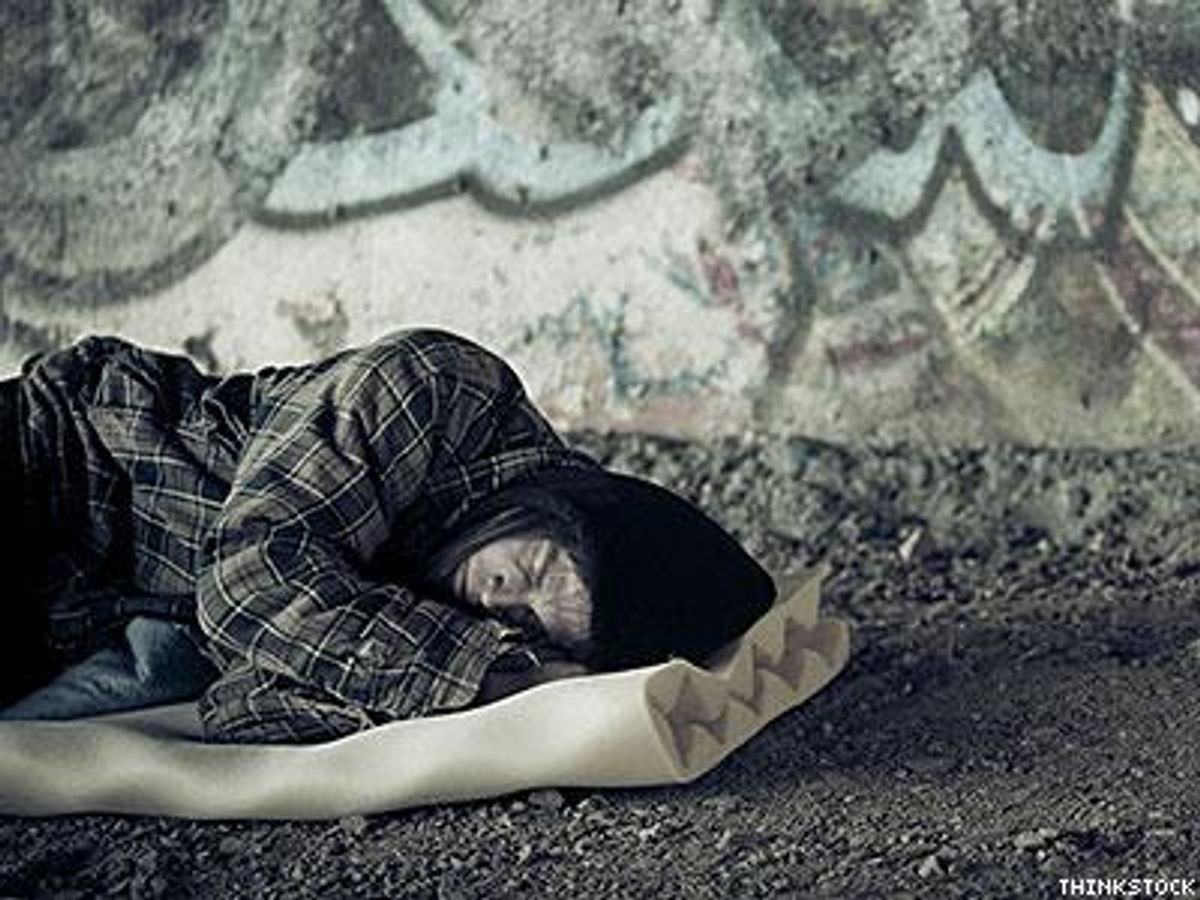
Some parents kick their kids out into the December cold for being gay. Here's your chance to help them.
December 17 2014 6:00 AM EST
November 17 2015 5:28 AM EST
By continuing to use our site, you agree to our Private Policy and Terms of Use.

A few months ago, a young man showed up in my office looking for help. He had fled from his abusive, unaccepting parents in Rhode Island, and made his way to New York City. He was small and thin; his size made him appear to be about 15 or 16 years-old, though he was a few years older.
He was carrying his few belongings in a clear plastic garbage bag, so they were on display for anyone to see. The thought of people seeing him carrying his dirty socks and underwear, along with his toothbrush and deodorant, was painful. Teens are acutely aware of how others see and judge them. They feel especially humiliated when people can tell that they are homeless.
I gave him two canvas bags and some food. We called our drop-in center and made a list of the few options he had for a place to spend the night. At the Ali Forney Center, we had a waiting list of more than 200 youths to get into our 89 beds. Sending him out into the night, I hoped he would be OK. I worried that his smallness and vulnerability would make him a target for abuse in the shelters or in the streets.
I hate many things about the epidemic of LGBT youth being driven from unaccepting homes and made to endure homelessness in the streets. One thing I hate is seeing kids show up with their belongings in garbage bags. It has become a symbol for me of how homophobia makes too many parents look at their LGBT children with contempt, as if they are garbage themselves -- something to be disposed of, thrown away. And it speaks to the sudden abruptness and thoughtlessness of the child's displacement. There is no plan made for where they will go, or how they will survive.
But to be a homeless LGBT youth is to face hardships far worse than carrying your belongings in a garbage bag. It means battling the cold, especially in the winter. It means being desperate to find somewhere warm and dry at night, knowing it would be a catastrophe if your shoes and clothes get wet. It means being exhausted and suffering chronic sleep deprivation, as you try with little success to rest on the subways and buses, in abandoned buildings, and on the streets. It means being terrified of violence when you have to sell your body and afraid that you will be beaten or robbed while trying to sleep on park benches or under bridges. To be a homeless LGBT youth all too frequently means being hungry, forsaken, alone, and brutalized.
There are about 200,000 homeless LGBT youths in our country. An LGBT youth is eight times more likely to become homeless than a straight youth. Is there a more terrible expression of homophobia in our times than this?
Our LGBT community has made amazing strides in making life better for our adults. But we have been too slow in protecting our kids from the disaster of family rejection and homelessness. In the U.S., there are fewer than 350 shelter beds dedicated to LGBT youths available for the estimated 200,000 kids who need them. They desperately need us to provide a support network to keep them safe.
This holiday season, I ask for your help. The Ali Forney Center in New York City is the largest organization in the country dedicated to homeless LGBT youth. We serve young people from all over the country. Last year, we provided care to more than 1,300 kids. We have struggled since the federal sequestration, losing about $1 million in government funds. More than ever before, we must rely on the support of our community to provide housing and supportive services to our youth. On our website, AliForneyCenter.org, anyone can make a donation, learn more about our programs, or find other services available to homeless LGBT youth in other areas across the country
I will end this on a hopeful note. Last week, despite our financial struggles, we achieved a long-dreamed milestone. We were able to begin expanding the hours of our drop-in center to be open overnight. And on the first night we were open, a 16-year-old boy showed up at our door. He had been put out of his home that day. What kind of a world is this where a kid gets put out in the December cold just because he is gay? But I am very grateful that we were able to take him in and keep him safe and warm. We may not be able to make parents love their LGBT kids, but we can damn sure make certain those kids are not left to suffer in the streets.
CARL SICILIANO is the founder and executive director of the Ali Forney Center, the nation's largest, most comprehensive organization dedicated to homeless LGBT youth. Watch a video that shows the harsh realities this group faces below.
Grammy-nominated Chappell Roan has four-word response to management split story